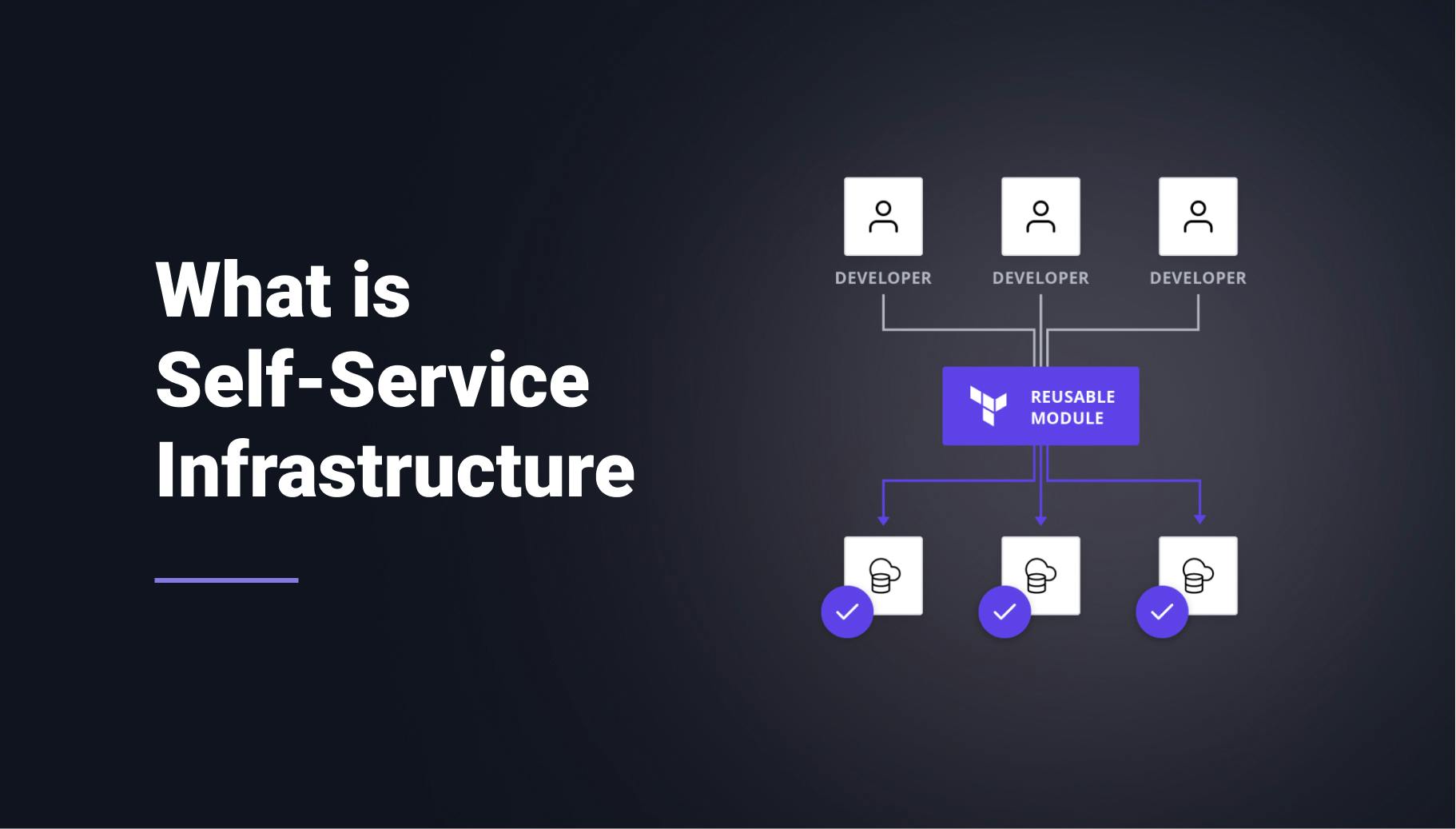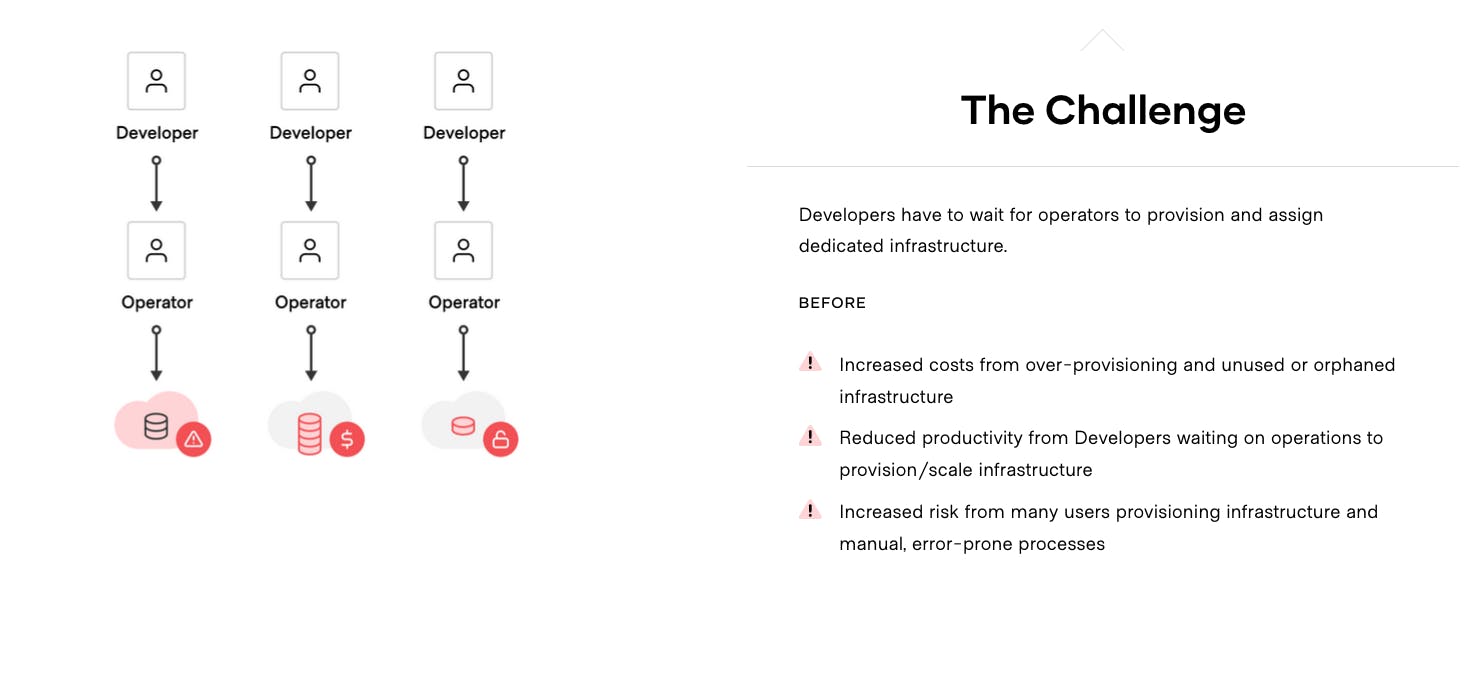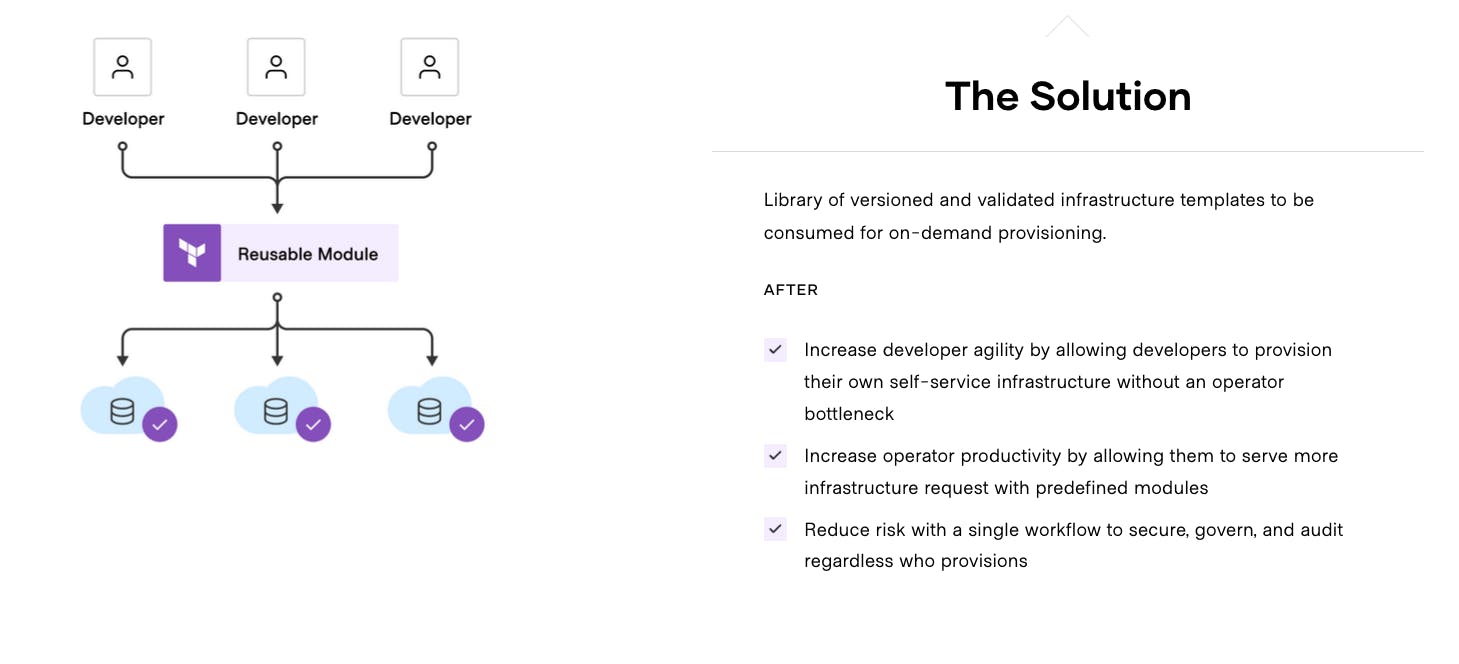What is a Self-Service Infrastructure Platform?
In today's fast-paced technology landscape, companies are in a constant race to innovate and deploy applications quickly. Ensuring that development and operations teams can collaborate efficiently is critical to achieving this goal. Self-service infrastructure platforms have emerged as a vital solution to this challenge. In this article, we will explore the concept of self-service infrastructure platforms, the problems they address, and their benefits for engineering and DevOps teams.

Romaric Philogène
April 17, 2023 · 2 min read
#The Problem with Traditional Infrastructure Management

Traditionally, development and operations teams have had to rely on each other to manage infrastructure. This often led to delays and inefficiencies, as developers had to wait for operations teams to provision and deprovision resources. These bottlenecks slowed down the application development and deployment process, leading to increased time-to-market.
#Introducing Self-Service Infrastructure Platforms

Self-service infrastructure platforms offer an alternative to the traditional approach by allowing developers to independently manage their infrastructure resources. By utilizing pre-defined, approved templates, developers can quickly provision and deprovision resources on-demand, streamlining the development process and reducing delays. As a result, engineering and DevOps teams can work more efficiently and autonomously, allowing organizations to be more agile and competitive.
#Benefits of Self-Service Infrastructure Platforms
- Improved Agility: By enabling developers to manage infrastructure on their own, self-service platforms allow organizations to respond more quickly to changing market demands and customer needs.
- Reduced Time-to-Market: By eliminating delays in provisioning and deprovisioning resources, self-service platforms enable faster application development and deployment, ultimately leading to a shorter time-to-market.
- Enhanced Collaboration: Self-service infrastructure platforms foster better communication and collaboration between development and operations teams, as they no longer need to rely on each other for resource management.
- Cost Savings: By enabling on-demand resource allocation, self-service platforms help organizations optimize their infrastructure usage, reducing overall operational costs.
Check out our previous article to learn more about the benefits of Self-Service Infrastructure Platforms.
#Examples of Self-Service Infrastructure Platforms
- AWS Service Catalog: Offered by Amazon Web Services, this platform allows organizations to create and manage catalogs of IT services, enabling developers to easily provision resources according to pre-defined templates.
- Qovery: Qovery is a self-service infrastructure platform that combines the simplicity of Platform as a Service (PaaS) with the flexibility of Infrastructure as Code (IaC).
- Google Cloud Deployment Manager: Part of the Google Cloud Platform, Deployment Manager allows developers to create and manage infrastructure resources using templates written in YAML, Python, or Jinja2.
- Microsoft Azure DevOps: Azure DevOps is a suite of collaborative tools that includes Azure Resource Manager, enabling developers to define and manage infrastructure using templates and version-controlled code.
#Conclusion
Self-service infrastructure platforms are a game-changer for engineering and DevOps teams, enabling them to work more efficiently and autonomously. By providing on-demand infrastructure management capabilities, these platforms not only reduce time-to-market but also foster better collaboration and cost savings. Embracing self-service infrastructure platforms can help organizations stay agile and competitive in an ever-evolving technology landscape.
Your Favorite Internal Developer Platform
Qovery is an Internal Developer Platform Helping 50.000+ Developers and Platform Engineers To Ship Faster.
Try it out now!

Your Favorite Internal Developer Platform
Qovery is an Internal Developer Platform Helping 50.000+ Developers and Platform Engineers To Ship Faster.
Try it out now!

